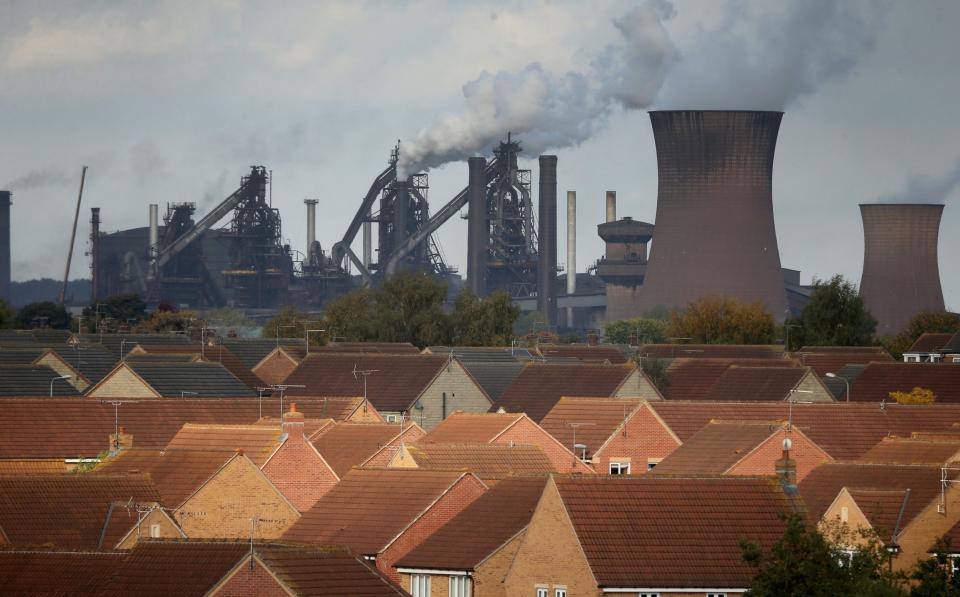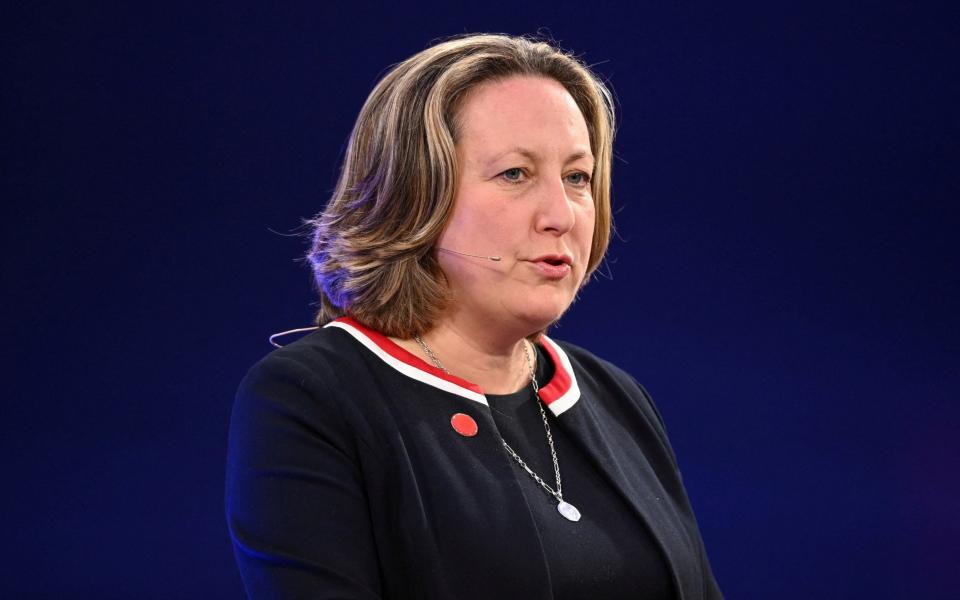With the Tories in turmoil, steel helps Boris Johnson show his mettle

Boris Johnson’s move to extend tariffs on imported steel by two years — a probable breach of World Trade Organisation rules — was welcomed by protectionist MPs from both sides of the political aisle. Industry also predictably lauded the decision, saying it will be protected from artificially cheap imports.
Much like fishing, steel carries with it a disproportionate amount of political focus compared to its size — in 2020 the £2bn it contributed to the economy was the equivalent of just 0.1pc of total economic output and 1.2pc of manufacturing.
But as the industry likes to point out: everything is made of steel. The metal goes into cars, aircraft, new buildings and the machinery that forms almost everything else.
Without it, steel insiders say the logic of having a manufacturing industry in the UK would be considerably weaker — a fact that will not be lost on the Prime Minister.
The move was pegged as an effort to “protect the steel sector”, Trade Secretary Anne-Marie Trevelyan said last week as she announced the news. At the same time, however, Johnson knows he needs to keep the sector onside as support for his leadership wanes. Their backing is all the more essential after the Conservatives last month lost a key by-election in the industrial north of England, when Wakefield switched back to Labour.
Britain carried over measures to protect the steel industry when it left the European Union. These rules apply to 15 categories of steel, restricting how much can be imported before a 25pc tax is imposed.
The decision to keep tariffs was a risky one — Trevelyan admitted it “departed” from WTO rules. But the Trade Secretary argued high energy prices in the wake of Russia’s attack on Ukraine, combined with the “aftershocks” of the pandemic and too much supply in steel markets, meant UK mills faced “evidence of serious injury or the threat of serious injury”.

Steel jobs with the biggest producers — India’s Tata; Liberty Steel, which is controlled by businessman Sanjeev Gupta; and British Steel, owned by China’s Jingye — are predominantly found in some key Tory battleground constituencies.
Scunthorpe steel mill, which is owned by British Steel in the North Lincolnshire constituency, made steel for the Shard in London as well as for railway track and conductor rails. Scunthorpe constituency turned Conservative in 2019, having been Labour since it was created in 1997.
MP Holly Mumby-Croft, who has been thanked by British Steel for her support, will defend a majority of 6,451 at the next election.
A British Steel spokesman said: “We’re extremely grateful for the intervention of the UK Government on this vital matter and for the support we’ve been given during the process, particularly from Scunthorpe MP Holly Mumby-Croft.” A Tata spokesman similarly welcomed the news.
Corby, in North Northamptonshire, is home to a Tata steel tubing factory, and has switched between Labour and Conservative since it was created in 1983. Tory MP Tom Pursglove won the seat in 2015 with a 2,412 majority which he extended in 2019 to over 10,000.
Liberty Steel, meanwhile, makes pipes in Hartlepool, a seat the Conservatives won last year for the first time in 62 years.
Johnson’s decision last week gives the industry some breathing room, says Cameron Pleydell-Pearce, professor at the University of Swansea.
The industry needs billions of pounds of investment to decarbonise and will struggle to raise it without dependable earnings, he adds, especially as overseas competitors have much more relaxed targets than Britain’s, and enjoy lower energy prices and often cheaper labour.
While that may win support for the Prime Minister, there is political risk for the Government too. Tariffs are an unwelcome cost for steelmakers’ customers, compounding a difficult time as expenses rise and the UK teeters on the edge of a recession.
Steve Morley, president of the Confederation of British Metalforming (CBM), says the deal exposes his members who need a particular category of metal not made in the UK, meaning they could still be hit with tariffs for about a third of the steel they buy.
Category 12 A steel, as it is called, is used in engineering components for aerospace and cars.
“The frustrating thing is that it's not currently made in the UK, so what are we actually safeguarding against?” Morley says, as he points out that steel customers employ ten times as many workers as steel makers.
“We don't want it to go away,” he adds. “We want UK steel to do well, just not at the expense of our members.”
This lack of certain types of product can be seen in the government’s own purchasing figures.
The UK is having to buy in more than two thirds of the steel it uses in critical infrastructure projects in the defence and nuclear industries, particularly in refitting Britain's nuclear waste dumping ground in Sellafield, Cumbria.
A defence boss recently told the Telegraph he tried buying British when it came to some specialist steel for a large weapons programme, but was told that making the appropriate upgrades to the mill in question would cost tens of millions of pounds more than his order was worth.
The backdrop to this lack of access to certain products is the industry’s long decline.
In the late 1960s, the UK was the world’s fifth-largest producer, dropping to 10th in the 1980s and 18th in 2015, according to a report by Parliament. Production peaked in 1970 with 28.3m tonnes a year, before sliding to just over a quarter of that last year.
A consequence of this is a focus on higher-end products to protect pricing. At the same time, however, industry has dropped others because they are too specialist or not profitable enough.
Insiders at Liberty Steel say a return of category 12A steel, which it used to make, could be on the horizon.
A Liberty Steel spokesperson said: “The decision to extend steel safeguards is an important step in forging a resilient, sustainable UK steel industry which can supply lower-carbon steel to manufacturing, construction and infrastructure across the UK economy.”
Maintaining the domestic industry is crucial to Britain’s economy, says Chris McDonald, chief executive of the materials processing institute: “Steel is special. You can't have a modern economy without steel.”
While nearly every type of steel can be bought from other countries, the metal is essential to the smooth running of the rest of the manufacturing industry, he argues, as shown by the spike in pricing following Russia’s attack on Ukraine.
“The problem is, that's fine, if you can buy it. But what happens when you can't?”
While other materials can be used, they are not as plentifully available as steel without a massive shift in industrial capacity. Johnson knows this - just as much as he knows he needs the industry’s support.

 Yahoo Finance
Yahoo Finance 